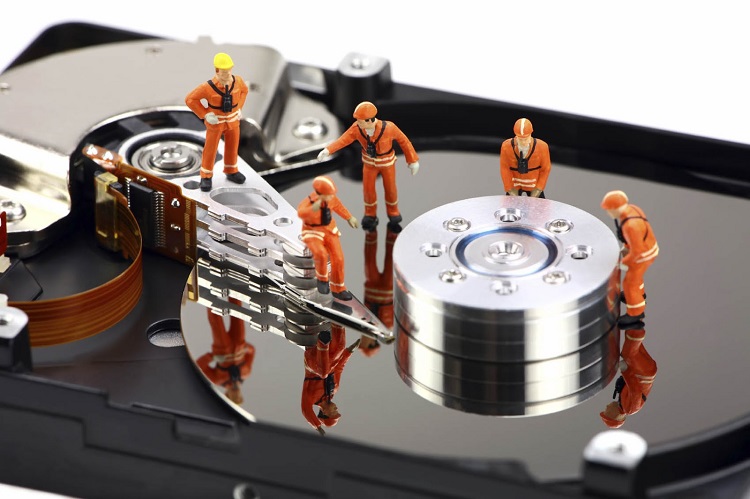Disk Recovery Service: How to Find Help for Recovering Data from Your Disks
In today’s digital world, data stored on disks—whether they are hard drives, SSDs, or external storage devices—holds significant personal and professional value. From cherished family photos to critical business documents, losing access to this data can be distressing. Fortunately, disk recovery service offer solutions for retrieving data from malfunctioning or damaged disks. This article will guide you through understanding disk recovery service and how to find the right help when you need to recover data from your disks.
Understanding Disk Recovery
Disk recovery refers to the process of retrieving lost, corrupted, or inaccessible data from various types of storage disks. These disks can include:
- Hard Drives (HDDs): Traditional spinning drives that store data on magnetic platters.
- Solid-State Drives (SSDs): Modern drives that use flash memory for faster data access.
- External Drives: Portable storage devices connected via USB or other interfaces.
- RAID Arrays: Complex setups used for redundancy and performance in business environments.
Data loss can occur due to various reasons, such as:
- Physical Damage: Damage from drops, spills, or other accidents.
- Logical Failures: Issues with the file system or accidental deletion.
- Firmware Corruption: Problems with the drive’s internal software.
- Malware: Viruses or malicious software that corrupt data.
Why Seek Professional Disk Recovery Services?
While some data recovery attempts can be made using DIY methods, many situations require professional intervention. Here’s why:
- Expert Knowledge: Professionals have extensive knowledge of different disk types and data recovery techniques. They can handle complex scenarios that typical users may not be equipped to manage.
- Advanced Tools: Recovery services use specialized software and hardware tools designed for retrieving data from damaged or corrupted disks. These tools are not typically available to the average consumer.
- Higher Success Rates: Professional services generally have higher success rates in recovering data, especially from physically damaged disks or complex issues.
- Data Security: Experts ensure that your data is handled securely and confidentially throughout the recovery process, which is crucial when dealing with sensitive information.
How to Find the Right Disk Recovery Service
Finding a reliable disk recovery service involves careful consideration. Here are some key factors to keep in mind:
Reputation and Experience
o Research: Look for companies with a solid reputation and years of experience in the industry. Check customer reviews and ratings to gauge their reliability.
o Specialization: Ensure the company has experience with the type of disk you need help with, whether it’s an HDD, SSD, or RAID array.
Services Offered
o Range of Services: Choose a company that offers a broad range of recovery services, including physical repair, logical recovery, and RAID reconstruction.
o Diagnostic Capabilities: The ability to diagnose issues accurately before beginning the recovery process is crucial. Some companies offer free diagnostics to assess the problem.
Transparent Pricing
o Clear Costs: Opt for companies with transparent pricing structures. Avoid those with hidden fees or unclear pricing. Look for providers that offer free initial diagnostics and “no recovery, no fee” guarantees.
Data Security
o Confidentiality: Ensure that the service provider follows strict security protocols to protect your data. Data should be handled with the utmost care and privacy throughout the recovery process.
Customer Support
o Responsive Support: Choose a company that offers excellent customer support. Effective communication and prompt responses to queries can significantly enhance your recovery experience.
The Disk Recovery Process
Here’s a general overview of what to expect during the disk recovery process:
Initial Consultation
o Describe the Issue: Contact the recovery service to explain the problem with your disk. Provide details about the type of disk and the nature of the data loss.
Diagnosis
o Assessment: The company will perform a diagnostic evaluation to determine the extent of the damage and the possibility of recovery. This may involve a fee, but some companies offer free diagnostics.
Recovery Plan
o Quote and Approval: Based on the diagnosis, the company will provide a quote for the recovery process. You can approve or decline the quote before they proceed.
Recovery Process
o Data Retrieval: The experts will use specialized tools and techniques to recover your data. This may involve repairing physical damage, addressing logical errors, or extracting data from corrupted files.
Verification
o Data Check: Once the recovery is complete, you’ll be provided with a list of recovered files. Verify the data to ensure it meets your expectations.
Data Transfer
o Return: The recovered data is transferred to a new storage device and returned to you. Ensure that the new device is properly formatted and compatible with your needs.
Preventing Future Data Loss
To avoid future data loss, consider these preventive measures:
Regular Backups
o Routine Backups: Regularly back up your data to multiple locations, such as external drives and cloud storage, to ensure you have copies in case of a failure.
Use Reliable Hardware
o Quality Devices: Invest in high-quality storage devices and replace them as they age to minimize the risk of failure.
Install Security Software
o Protection: Use reputable antivirus and anti-malware software to protect your disks from viruses and malicious attacks.
Handle Disks Carefully
o Proper Use: Handle storage devices with care to avoid physical damage. Protect them from extreme temperatures, moisture, and physical impacts.
Disk recovery services are essential for retrieving lost or inaccessible data from various types of storage disks. By understanding the role of these services and considering factors such as reputation, services offered, pricing, and data security, you can find the right help to recover your valuable information. Whether you’re dealing with a failed hard drive, a damaged SSD, or a corrupted RAID array, the right disk recovery service can help you regain access to your data and protect it for the future.

